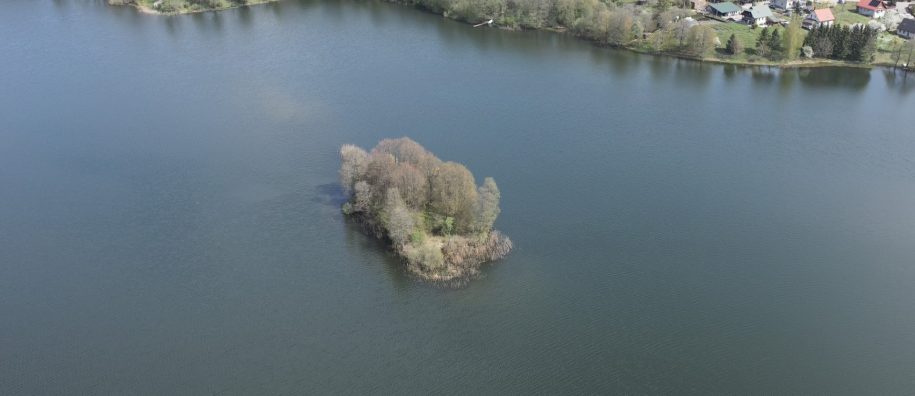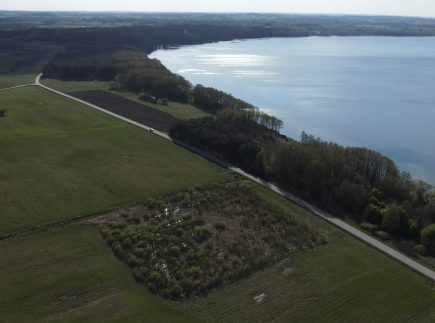
MRU Environmental Management LAB researchers are completing a project investigating Lithuania's lake ecosystem services. Lithuania has over 1000 lakes of all shapes and sizes spread throughout the country.
The close relationship of Lithuanian people with nature is imprinted in their proximity to lake ecosystems. Whether for recreational or subsistence purposes, Lithuania's lakes support many livelihoods in rural and urban populations.
The project, “Lithuanian Lake Ecosystem Services: Impacts of Climate and Land-Use Change" (LACLAN), aimed at assessing and mapping ecosystem services nationally in Lithuania based on a multi-temporal analysis. It started in 2021 and will be completed shortly.
Ecosystem services is the capacity of natural ecosystems to support human well-being. Generated by ecological processes, ecosystem services can be divided into: provisioning, regulating & maintenance, and cultural.
Lake ecosystems provide a wide array of ecosystem services, supporting both terrestrial and aquatic biomes. There is a panoply of information about the importance of lake ecosystems in supporting humans and biota. However, regarding ecosystem services, aquatic ecosystems, like lakes, still need to be well studied.
The majority of studies done so far focus mainly on single-lake ecosystems. Very few provide comprehensive knowledge of ecosystem services provided by lake ecosystems nationally, especially by translating the results into spatially explicit information. This was the motivation to study and understand the provision of ecosystem services in lake ecosystems in Lithuania, an Environmental Management LAB researcher said.
The project outputs will be available through a geodatabase, a final report, and scientific publications. At the start of the project, a stakeholder meeting was held to decide which ecosystem services would be assessed for the whole country. Five ecosystem services were defined: water for non-drinking purposes (provisioning), fibres and other materials for construction (provisioning), nutrient regulation (regulation & maintenance), maintenance of nursery conditions (regulation & maintenance), and recreation (cultural).
In the second step, a literature review was carried out to understand the following methodological approach. Based on this review, LAB researchers published a scientific study. The main conclusion was that few studies assessed and mapped lake ecosystem services internationally (check the study here). This step allowed us to identify potential indicators to assess and map ecosystem services.
We developed our methodological frameworks based on the need for methodological approaches for national scale mapping of lake ecosystem services and on the identified indicators. The frameworks were published in a scientific article, which was the basis for our further work.
The following steps were necessary to collect data and to do the mapping and assessment. Based on available data, researchers selected more than 1000 lakes to be analysed from the HydroLAKES database. The data was collected from several sources: monitoring data from Lithuania's Ministry of Environment, remote sensing, modeled data, and geospatial databases. The search was extended since the project comprised a multi-temporal perspective. Data was collected for years 1990, 2000, 2006, 2012 and 2018. The output is a spatially explicit database of lake ecosystem services in Lithuania, comprising the analyzed years.
Another aspect within the project, LACLAN, was assessing climate change's impacts on lake ecosystem services. Therefore, we developed four future socioeconomic scenarios following the RCP 4.5 climate scenario. Future data was collected from available modelled data and developed researchers' own modelling data. The output of this step is a map of lake ecosystem services based on four scenarios for the year 2050. The output of this step will be made available in the geodatabase.
The final step of this project is to apply the developed methodological frameworks to a high-resolution perspective. Three case studies (lakes) were selected together with the stakeholders.
For this step, besides higher resolution data, we employ proximal sensing (drone imagery) to test the capability to map ecosystem services. The output of this step will also be made available in the geodatabase. Finally, based on the developed information, recommendations will be made on how to continue to monitor the provision of lake ecosystem services in Lithuania. This information will be made available through a report, that may possible be used by environmental and spatial managers, governmental bodies, NGOs and other citizen associations.
The preliminary results of LACLAN have been disseminated at several conferences at the international level, EGU 2023 for example.
The LACLAN project, which contributed to advancing knowledge and was one of the few studies to map and assess lake ecosystem services nationally. This project received funding from the European Social Fund under the No 09.3.3-LMT-K-712 "Development of Competences of Scientists, Other Researchers and Students Through Practical Research Activities."
MRU Environmental LAB researcher Miguel Inácio is part of the project team. Inácio is a marine biologist. He has a PhD in Ecology and Environmental Sciences from Klaipėda University. He completed a Master's degree in Marine Biodiversity and Conservation at Belgium's Ghent University. His research was developed at Germany's Leibniz Institute for Baltic Sea Research Warnemuende. It is focused on assessing and mapping ecosystem services provisions in coastal and marine systems, in order to support coastal and marine management approaches.

